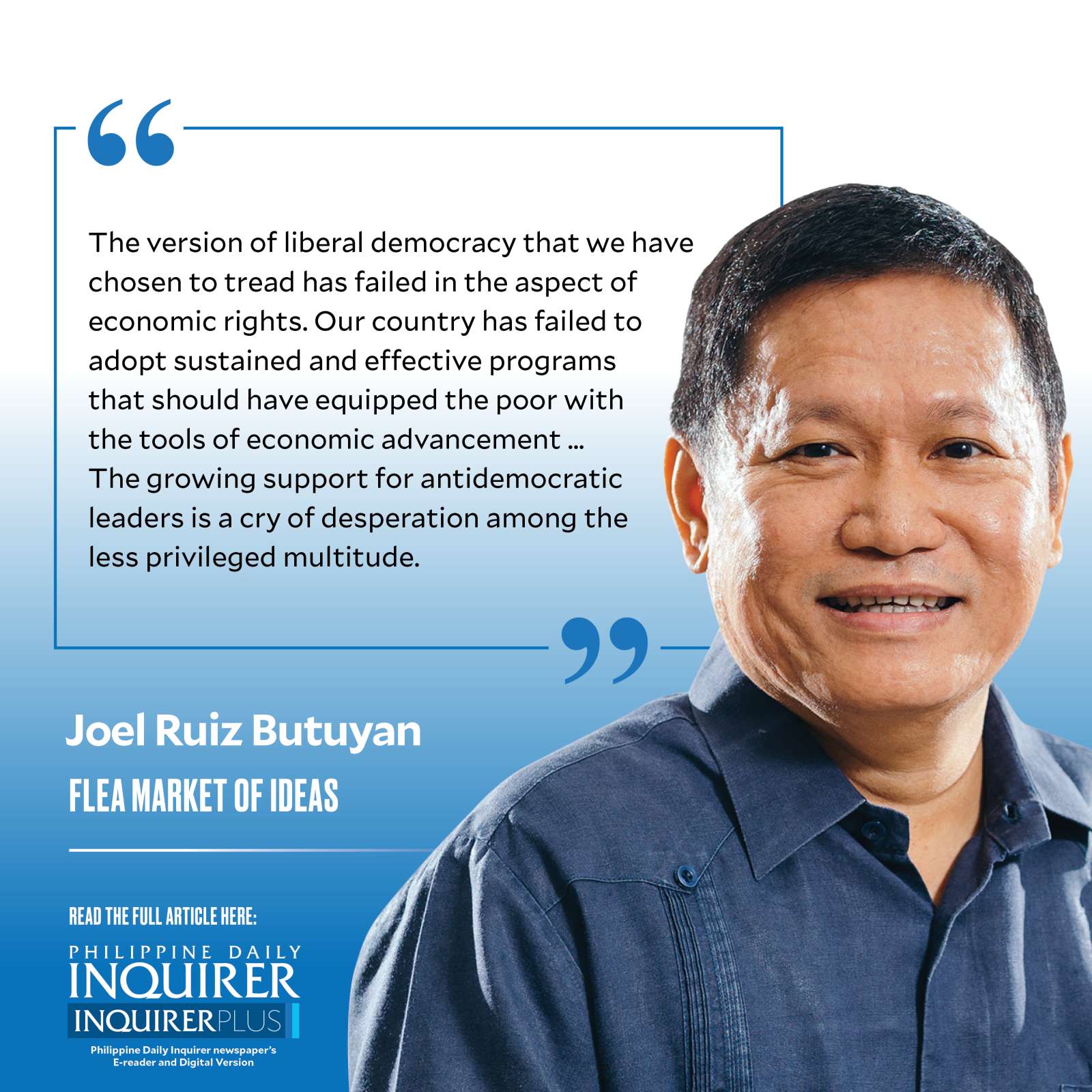The rise of antidemocratic leaders

It’s a noticeable trend all over the world. And it’s a very disturbing development. More voters are electing leaders who are antidemocratic and many are even tainted with scandals. In countries still ruled by leaders who profess adherence to democratic ideals, people’s support for antidemocratic opposition figures is increasing in troubling numbers.
These antidemocratic politicians are loosely called “populist” leaders. The label is misleading, however, because it connotes leaders who advocate the common people’s interests. In reality, they’re no different from self-professed democratic leaders in the sense that their means of governance equally fail to achieve the common people’s dreams of a better life. What sets these antidemocratic leaders apart is that they espouse sacrificing the people’s political rights as supposedly necessary to improve the economic welfare of the masses.
Less than a lifetime ago, it was unimaginable for such antidemocratic leaders to be chosen over pro-democracy political figures in countries where citizens freely exercise their right to vote. What has happened since then? Is there some potion released in our planet’s atmosphere that has tampered with our brain neurons?
Why does it appear that a growing number of humanity now gives little value (or even no value at all) to what used to be life dreams of people around the world—the freedom to choose leaders without fear; freedom of speech; press freedom; freedom from arbitrary detention, searches, and killings?
There are probably multiple reasons as to why the ideals we used to hold priceless have suffered immense devaluation in our lives. Judging by the Philippine experience, there seems to be one principal reason that may be emblematic in other countries as well.
After the 1986 Edsa People Power Revolution, the liberal democracy that the Philippines embraced bestowed both political and economic freedom to everyone. The guiding policy was that everyone, rich and poor alike, was free to exercise political rights and allowed to enjoy economic rights.
It has turned out, however, that political rights are not equally enjoyed, and their usefulness felt, by people who are constantly struggling to survive economically. While the rich have the privilege to analyze and criticize the government in their leisure time while huddled in a Starbucks café, the poor’s time and energy are completely spent on backbreaking work, long commutes, and household chores. Political rights can only be enjoyed if one lives with a modicum of economic security. With so many of our people living with economic insecurity, political rights rank low in the hierarchy of needs and aspirations.
We’ve also found out that the conferment of economic rights equally to the rich and poor actually meant preserving and even worsening economic inequality. How can the poor enjoy economic rights when they lack capital, education, and influential connections, which are the indispensable tools for the exercise of economic rights? With the rich having monopoly of the tools of economic advancement, the rich have become richer while the poor have been stuck in poverty.
In hindsight, our choice of liberal democracy was the right path insofar as it led to the conferment of political rights equally to the rich and poor. But the version of liberal democracy that we have chosen to tread has failed in the aspect of economic rights. Our country has failed to adopt sustained and effective programs that should have equipped the poor with the tools of economic advancement. To be fair, there have been efforts in this regard, such as programs for agrarian reform, free college education, universal health care, and various forms of assistance to the poor. But our worsening poverty attests to the half-baked, token, superficial, and ineffective nature of these programs.
Voters in liberal democracies have been opting for antidemocratic leaders because they are gradually realizing that so-called democratic leaders are responsible for an economic system that is in the business of growing and manufacturing poverty. Voters will eventually realize that antidemocratic leaders are not the economic messiahs that they have been looking for.
Democratic leaders may pontificate all they want on the dismal human rights record, taint of corruption, and crass behavior of antidemocratic leaders, but if the former do not put forward an economic vision that’s better at capturing the hopes and dreams of ordinary people, their espousal of political rights will sound like a dissonant chord in the ears of the masses.
The growing support for antidemocratic leaders is a cry of desperation among the less privileged multitude. Unless democratic leaders recognize what the weeping stands for, our country and other countries that share our fate will wander in the proverbial wilderness for many years to come.
—————-
Comments to fleamarketofideas@gmail.com
















